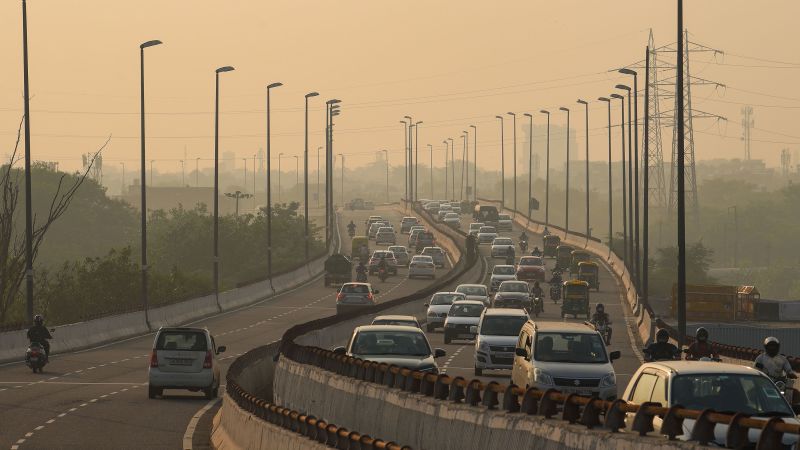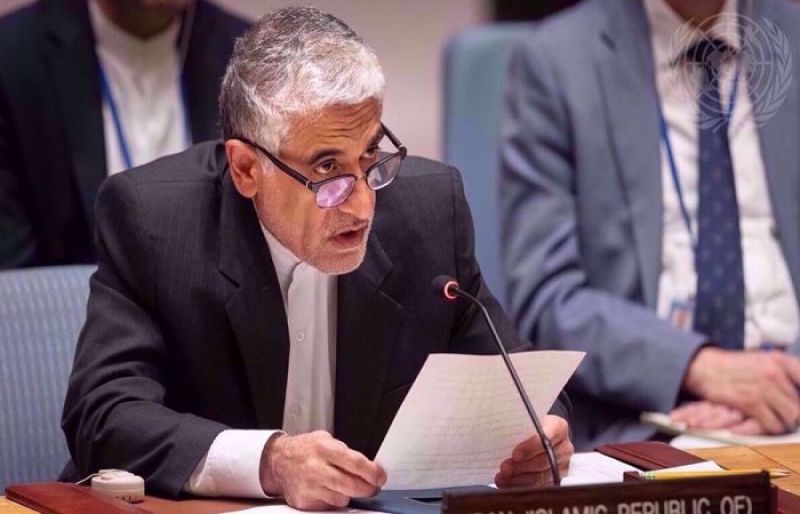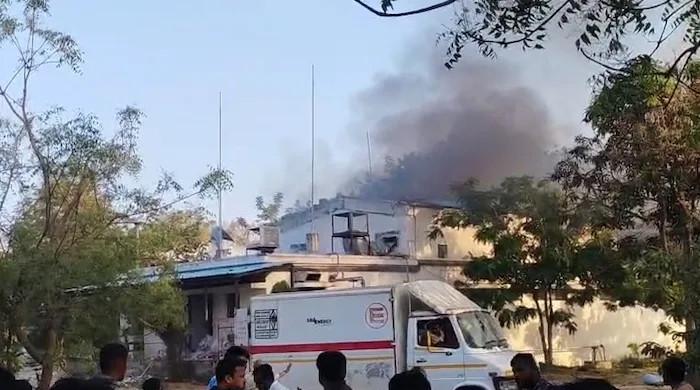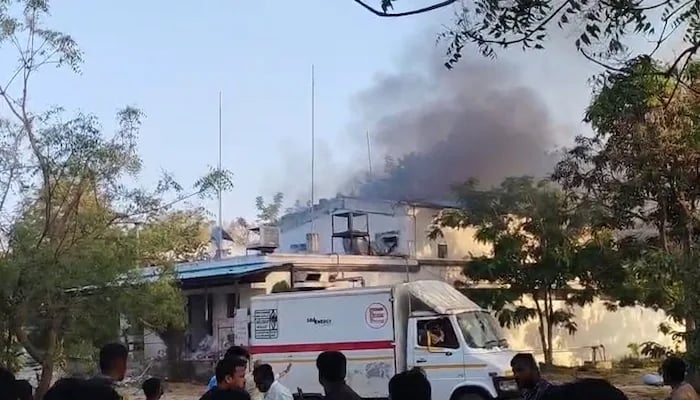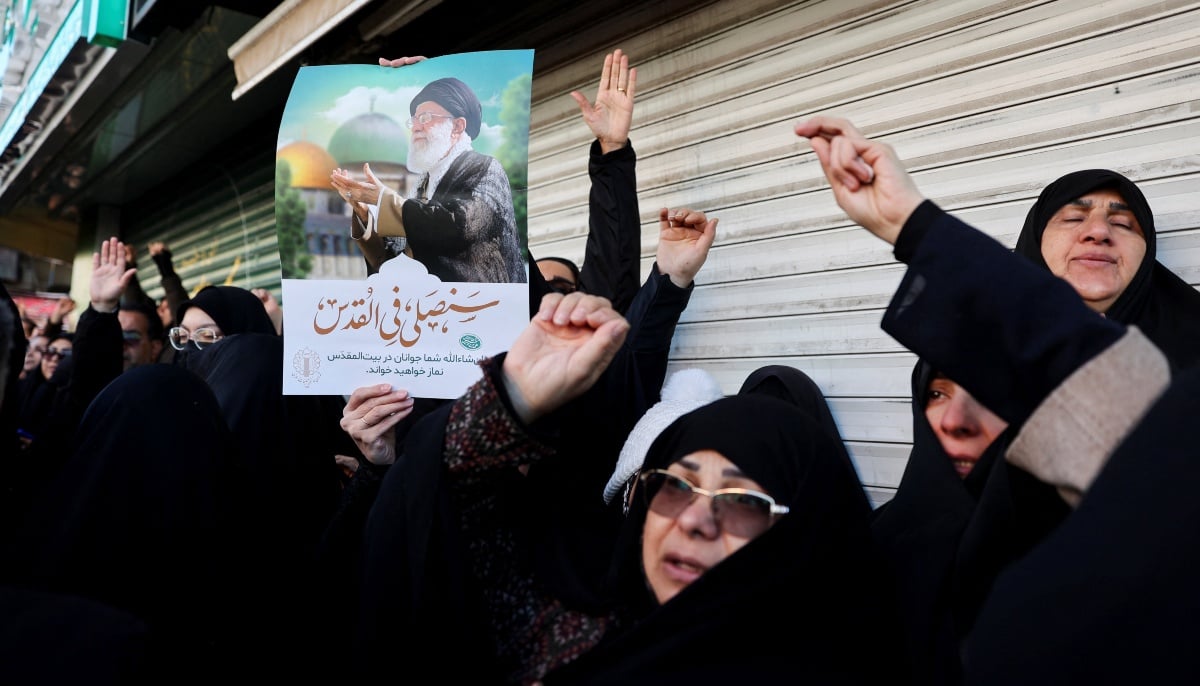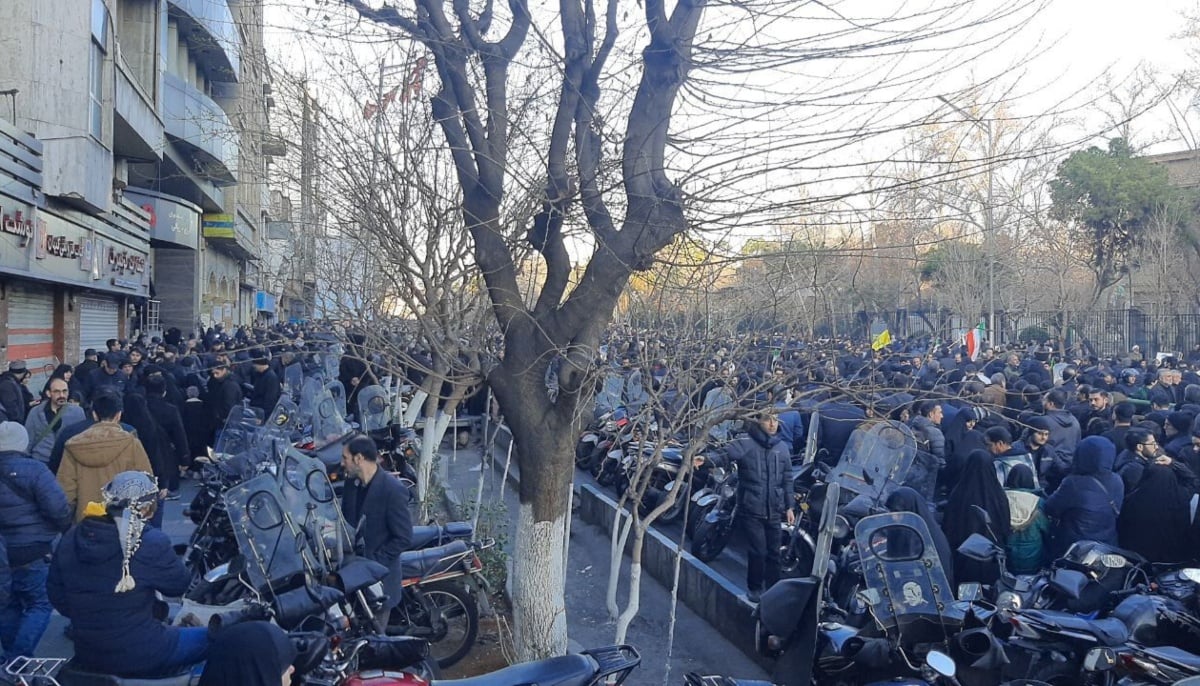CNN
—
Air pollution spiked to unhealthy levels around the world in 2021, according to a new report.
The report by IQAir, a company that tracks global air quality, found that average annual air pollution in every country — and 97% of cities — exceeded the World Health Organization’s air quality guidelines, which were designed to help governments craft regulations to protect public health.
Only 222 cities of the 6,475 analyzed had average air quality that met WHO’s standard. Three territories were found to have met WHO guidelines: the French territory of New Caledonia and the United States territories of Puerto Rico and the US Virgin Islands.
India, Pakistan and Bangladesh were among the countries with the worst air pollution, exceeding the guidelines by at least 10 times.
The Scandinavian countries, Australia, Canada, Japan and United Kingdom ranked among the best countries for air quality, with average levels that exceeded the guidelines by 1 to 2 times.
In the United States, IQAir found air pollution exceeded WHO guidelines by 2 to 3 times in 2021.
“This report underscores the need for governments around the world to help reduce global air pollution,” Glory Dolphin Hammes, CEO of IQAir North America, told CNN. “(Fine particulate matter) kills far too many people every year and governments need to set more stringent air quality national standards and explore better foreign policies that promote better air quality.”
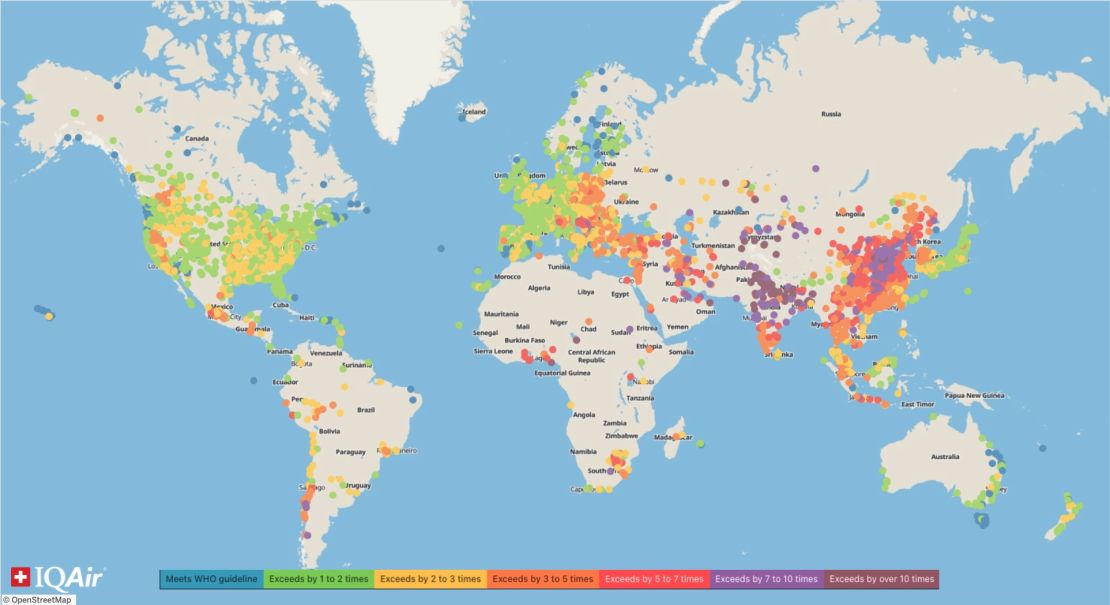
Above: IQAir analyzed average annual air quality for more than 6,000 cities and categorized them from best air quality, in blue (Meets WHO PM2.5 guildline) to worst, in purple (Exceeds WHO PM2.5 guideline by over 10 times). An interactive map is available from IQAir.
It’s the first major global air quality report based on WHO’s new annual air pollution guidelines, which were updated in September 2021. The new guidelines halved the acceptable concentration of fine particulate matter — or PM 2.5 — from 10 down to 5 micrograms per cubic meter.
PM 2.5 is the tiniest pollutant yet also among the most dangerous. When inhaled, it travels deep into lung tissue where it can enter the bloodstream. It comes from sources like the burning of fossil fuels, dust storms and wildfires, and has been linked to a number of health threats including asthma, heart disease and other respiratory illnesses.
Millions of people die each year from air quality issues. In 2016, around 4.2 million premature deaths were associated with fine particulate matter, according to WHO. If the 2021 guidelines had been applied that year, WHO found there could have been nearly 3.3 million fewer pollution-related deaths.
IQAir analyzed pollution-monitoring stations in 6,475 cities across 117 countries, regions and territories.
In the US, air pollution spiked in 2021 compared to 2020. Out of the more than 2,400 US cities analyzed, Los Angeles air remained the most polluted, despite seeing a 6% decrease compared to 2020. Atlanta and Minneapolis saw significant increases in pollution, the report showed.
“The (United States’) reliance on fossil fuels, increasing severity of wildfires as well as varying enforcement of the Clean Air Act from administration to administration have all added to U.S. air pollution,” the authors wrote.
Researchers say the main sources of pollution in the US were fossil fuel-powered transportation, energy production and wildfires, which wreak havoc on the country’s most vulnerable and marginalized communities.
“We are heavily dependent on fossil fuels, especially in terms of transportation,” said Hammes, who lives a few miles from Los Angeles. “We can act smartly on this with zero emissions, but we’re still not doing it. And this is having a devastating impact on the air pollution that we’re seeing in major cities.”
Climate change-fueled wildfires played a significant role in reducing air quality in the US in 2021. The authors pointed to a number of fires that led to hazardous air pollution — including the Caldor and Dixie fires in California, as well as the Bootleg Fire in Oregon, which wafted smoke all the way to the East Coast in July.
China — which is among the countries with the worst air pollution — showed improved air quality in 2021. More than half of the Chinese cities analyzed in the report saw lower levels of air pollution compared to the previous year. The capital city of Beijing continued a five-year trend of improved air quality, according to the report, due to a policy-driven drawdown of polluting industries in the city.
The report also found that the Amazon Rainforest, which had acted as the world’s major defender against the climate crisis, emitted more carbon dioxide than it absorbed last year. Deforestation and wildfires have threatened the critical ecosystem, polluted the air and contributed to climate change.
“This is all a part of the formula that will lead to or is leading to global warming.” Hammes said.
The report also unveiled some inequalities: Monitoring stations remain scant in some developing countries in Africa, South America and the Middle East, resulting in a dearth of air quality data in those regions.
“When you don’t have that data, you’re really in the dark,” Hammes said.
Hammes noted the African country of Chad was included in the report for the first time, due to an improvement in its monitoring network. IQAir found the country’s air pollution was the second-highest in the world last year, behind Bangladesh.
Tarik Benmarhnia, a climate change epidemiologist at Scripps Institution of Oceanography who has studied the health impact of wildfire smoke, also noted that relying only on monitoring stations can lead to blind spots in these reports.
“I think it is great that they relied on different networks and not only governmental sources,” Benmarhnia, who was not involved in this report, told CNN. “However, many regions do not have enough stations and alternative techniques exist.”
The UN Intergovernmental Panel on Climate Change concluded in its 2021 report that, in addition to slowing the speed of global warming, curbing the use of fossil fuels would have the added benefit of improving air quality and public health.
Hammes said the IQAir report is even more reason for the world to wean off fossil fuel.
“We’ve got the report, we can read it, we can internalize it and really devote ourselves to taking action,” she said. “There needs to be a major move towards renewable energy. We need to take drastic action in order to reverse the tide of global warming; otherwise, the impact and the train that we’re on (would be) irreversible.”


